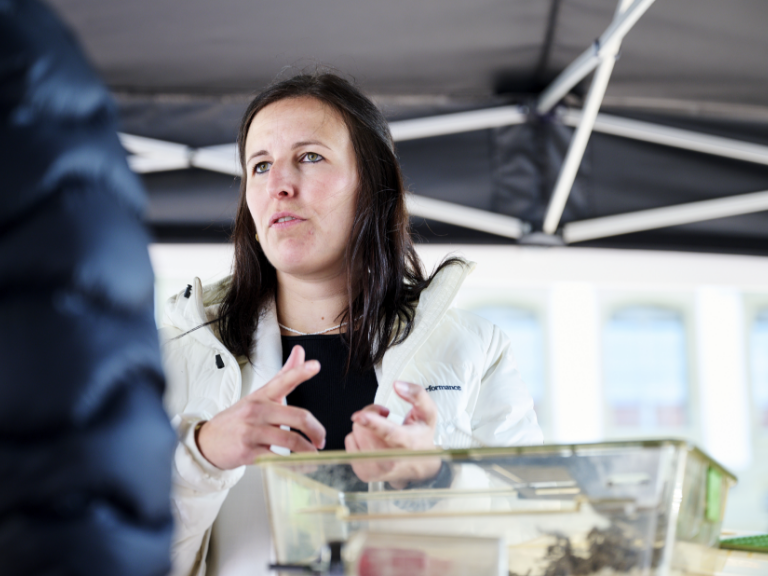Animal research
A “thank you” to animal caretakers
Researchers and animal caretakers got to know each other at a breakfast at the University of Bern. The aim is to intensify personal contact and make the mutual appreciation of their joint work visible.
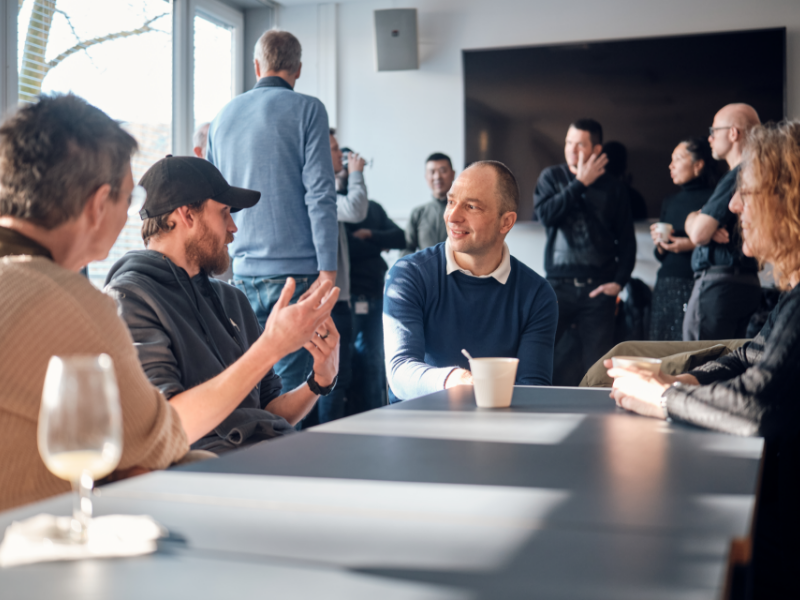
They play an important role in animal testing: animal caretakers, veterinarians, lab technicians and veterinary assistants. They are responsible for the breeding, care and wellbeing of the animals in a strictly hygienic and highly regulated environment, they conduct experiments, look after sick animals and meticulously document their condition. They also work closely with researchers. Despite this, the two sides rarely meet in person: the communication between the researchers and animal caretakers usually takes place by email or entries in a jointly-used computer program, and access restrictions for researchers also apply at some animal facilities.
Getting to know each other with fish tanks
“We seemed to have too little time in our everyday lives to interact in person,” explains Prof. Dr. Carsten Riether from the Department of Medical Oncology at the University Hospital Bern. Riether therefore organized a “Breakfast with the scientists” event together with PD Dr. med. vet. Alessandra Bergadano, Head of the Experimental Animal Center (EAC) at the University of Bern, which took place at the end of January.
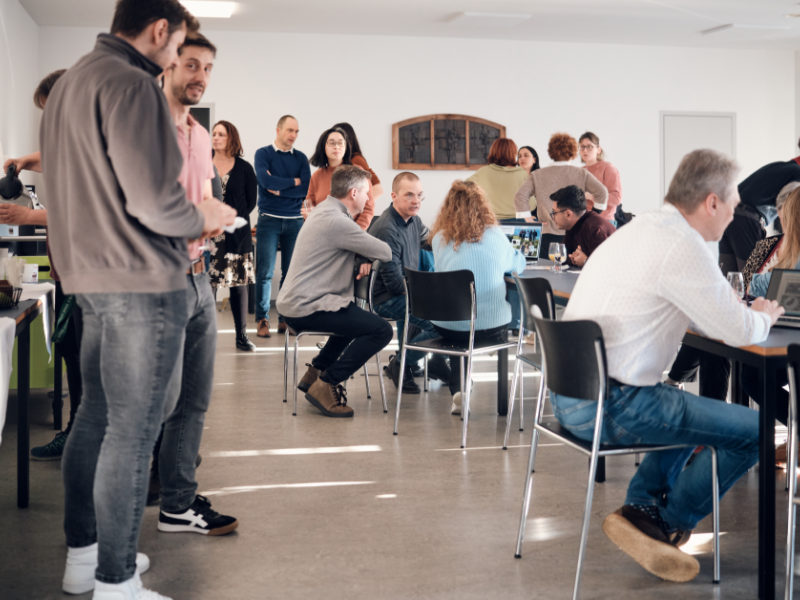
At the event, some 50 professors and animal caretakers, veterinarians and lab technicians from human and veterinary medicine met at the Vetsuisse Faculty to get to know each other over coffee and croissants. The event began with a round of introductions before animated discussions took place, research projects were presented and work material such as fish tanks were shown.
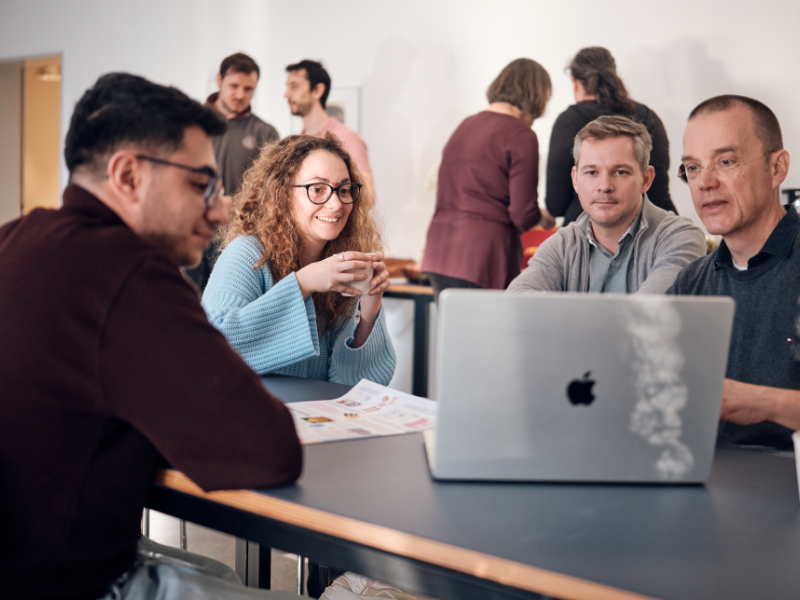
Research needs animal care – and vice versa
At the event, the researchers also expressed their appreciation and thanks to the animal caretakers. After all, without their work, the research wouldn’t be possible. “Animal caretakers and researchers depend on each other,” explains Carsten Riether. The animal caretakers are integrated in the experiments. “We can only work as a team,” says Riether. “That's why it's important to know each other - among other things, so that the animal caretakers know which procedures are crucial for experiments.” It is all in the tradition of “Better Science”: a fair, appreciative and responsible environment among the university staff that improves their work and contributes to scientific excellence.
.
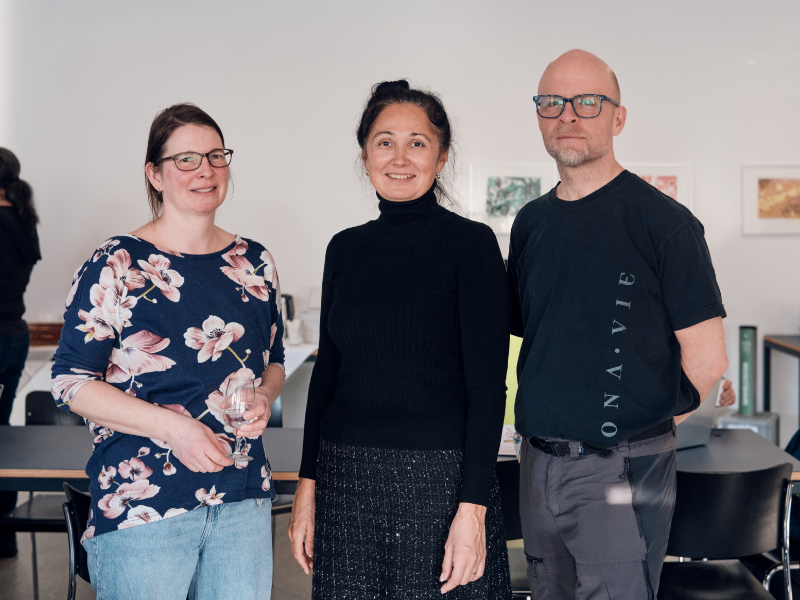
Direct, personal contact is also of importance to the animal caretakers: “I think it’s great to not only meet with our direct colleagues, but also with the researchers. This helps us to better understand the purpose of our work – and we don’t just carry out our role ‘blindly’,” explains Irina Geiger, a veterinary assistant at the Theodor Kocher Institute at the University of Bern. Pawel Styczynski, also a veterinary assistant at the Theodor Kocher Institute, adds: “Events of this kind help us to get to know each other and to see who is sitting at the other screen. This allows us to communicate better and work more efficiently.”
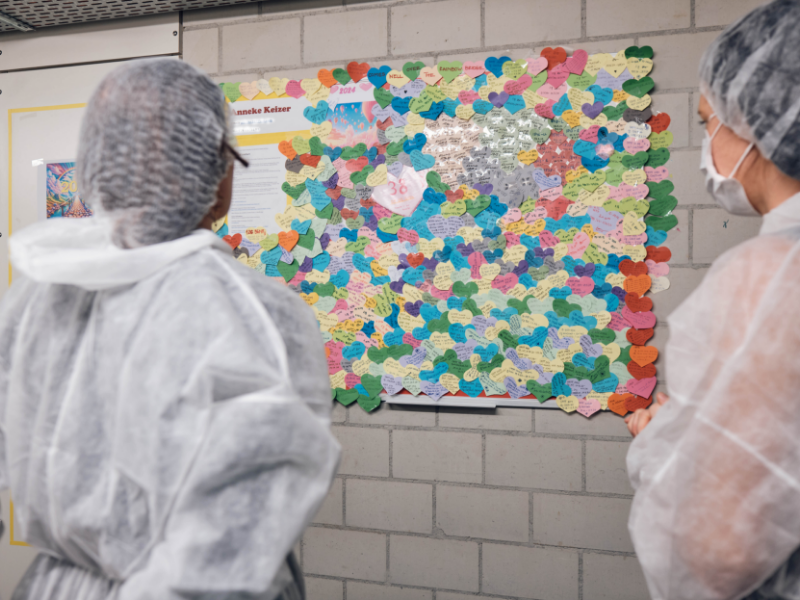
Understanding what animals give their lives for
The animal caretakers care about their animals, they build up a relationship with them and want to know why an experiment is being carried out as well as why, in most cases, the animals have to be sacrificed at the end of the experiment. For this reason, the animal caretakers say goodbye to their animals and thank them in the form of a “Mouse Memorial Wall” in the Vetsuisse Faculty at the University of Bern. On the wall, animal caretakers give a heart-shaped Post-it for each small group of mice that had to be euthanized after an experiment.
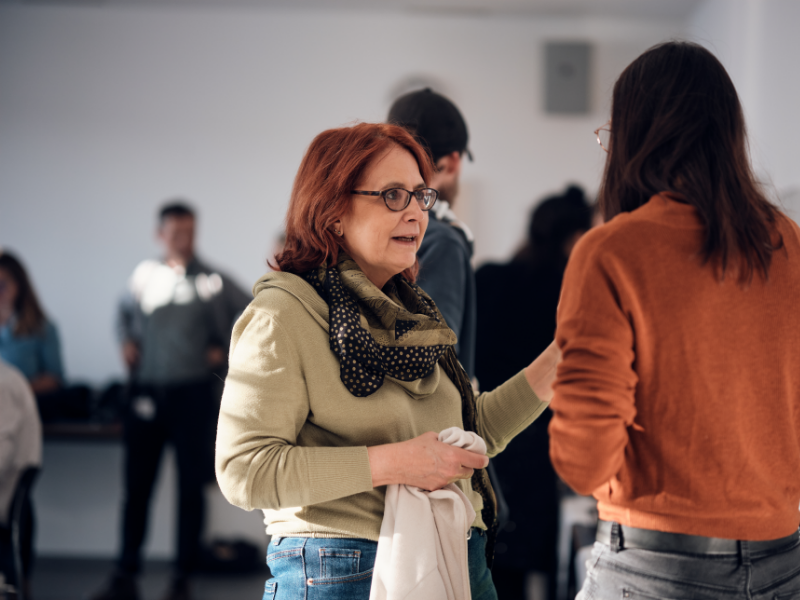
“The thanks expressed to the animals, as well as the thanks and respectful interaction between employees, are both examples of the ‘Culture of Care’ which supports the wellbeing of the laboratory animals and the people who work with them,” explains Isabelle Desbaillets, Animal Welfare Officer and Head of the Animal Welfare Office at the University of Bern. Next year’s meeting is therefore already being planned.
«Culture of Care»
The University of Bern is part of the Swiss Culture of Care working group, which is dedicated to supporting the respectful treatment of animals and staff. In 2023, the University of Bern signed the “Swiss Culture of Care Charter” of the Swiss 3R Competence Center (3RCC). The Charta is designed to provide practical suggestions for steps and measures to actively incorporate the CoC into the daily research work. It is rooted in the 3R principle. Joining the CoC Charter is an official recognition that the University of Bern is doing its best to apply the 3R principles above and beyond the statutory requirements. The financial support from the university includes rehoming projects and introductory courses in laboratory animal science for the researchers who work with the animals. In the rehoming projects, laboratory animals that are no longer used for experiments are given to animal welfare organizations so that they can ultimately find new homes with animal lovers. The report is available here.
The Experimental Animal Center (EAC) at the University of Bern has the Culture of Care as a strategic goal and its head, PD Dr. med. vet. Alessandra Bergadano, helped to develop the charter. The “Culture of Care” also includes thanking the staff who work with animals, conduct the experiments and make good research possible. Researchers acknowledged this in January with a “Breakfast with the scientists”: the professors invited animal keepers and laboratory staff to a joint breakfast event in which they were able to get to know each other better and discuss ideas. The breakfast was organized by PD Dr. med. vet. Alessandra Bergadano, Head of the Experimental Animal Center (EAC), and Prof. Dr. Carsten Riether from the Department of Medical Oncology at the University Hospital Bern.
More information about animal research at the University of Bern (in German)

